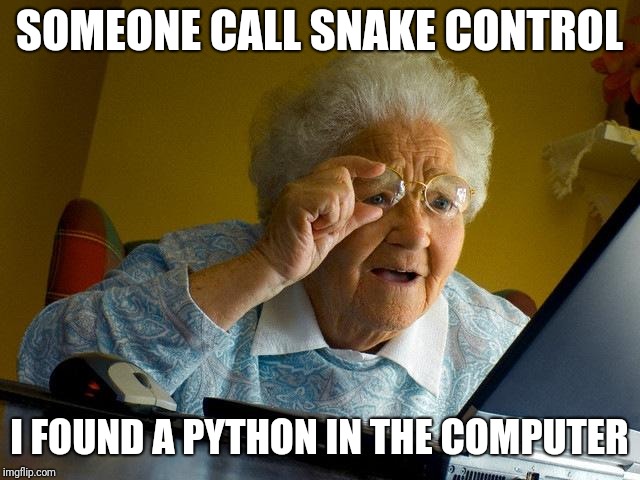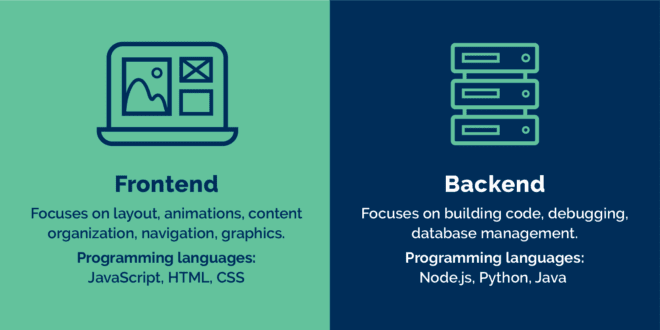Table of contents
- Step 0: Get Comfortable with Your PC
- Step 1: Learn a Programming Language
- Step 2: Build Projects
- Step 3: Watch Programming Videos
- Step 4: Decide on Your Path
- Step 5: Build More Projects
- Step 6: Participate in Hackathons
- Step 7: Prepare for Interviews and Get an Internship or Freelance
- Some useful tips
- Conclusion
Programming is one of the most in-demand skills in today's job market, with a wide range of career opportunities available in fields such as web development, mobile app development, data science, and more. However, becoming a programmer can seem like a daunting task, especially if you have no prior experience in coding. In this article, we'll break down the steps you need to take to become a programmer, from getting started with your PC to landing your first programming job.
Step 0: Get Comfortable with Your PC
Before you can start learning to program, you need to be comfortable using your PC for everything. This means learning its features, such as navigating files and folders, using basic keyboard shortcuts, and working with different software programs. If you're not comfortable using a computer, getting into development might take you longer comparatively.
I would recommend you replace your phone with your PC for most of the tasks you perform throughout the day. You need to be a consumer first before you start developing for it.

Step 1: Learn a Programming Language
The first step to becoming a programmer is to choose a programming language to learn. Two of the most popular programming languages are Python and JavaScript. Python is a great language for beginners because it's easy to learn, has a simple syntax, and is used in a variety of industries, including web development, data science, and machine learning. JavaScript is also a great language to learn because it's widely used in web development and can be used on both the front-end(visual part) and back-end(logical part) of websites.
Step 2: Build Projects
Once you've learned the basics of a programming language, it's time to start building projects. This is where you'll really start to improve your skills and learn how to solve real-world problems with code. Start with small projects, like building a calculator or a simple game, and gradually work your way up to more complex projects such as a life-changing alarm app XD.
Step 3: Watch Programming Videos
There are a lot of programming videos available on YouTube, covering everything from basic programming concepts to advanced algorithms. Watch as many videos as you can to gain a better understanding of programming and learn new techniques.
The most important thing here is to get involved in the community and keep yourself updated with the new developments. This is pretty fun too, I would personally recommend you to check out Theo and The Primeagen's Channel for some entertaining and insightful tech content.
Step 4: Decide on Your Path
At this point, you'll need to decide if you want to specialize in a particular area of programming, like web development, etc, or if you want to focus on more theoretical topics like data structures and algorithms. This decision will help you determine which skills to prioritize in your learning journey.

Step 5: Build More Projects
No matter which path you choose, building more projects is the key to improving your skills and showcasing your work to potential employers. Create a portfolio of your projects to show off your skills and demonstrate your problem-solving abilities.
Step 6: Participate in Hackathons
Hackathons are events where programmers come together to work on projects and solve problems in a collaborative environment. Participating in hackathons can help you improve your skills, meet other programmers, and even land a job.

Step 7: Prepare for Interviews and Get an Internship or Freelance
Finally, you'll need to prepare for job interviews and start looking for opportunities to gain experience. This could mean applying for internships or freelance work to gain hands-on experience and build your resume. Remember to keep building projects and improving your skills, and you'll be well on your way to a career as a programmer.

Some useful tips
Remember, becoming a programmer is not just about learning a programming language or mastering technical skills. It's also about developing problem-solving abilities, critical thinking, and the ability to work collaboratively with others. Throughout your journey, stay curious, embrace challenges, and never stop learning.
As you progress in your programming skills, consider joining online communities and forums where you can connect with fellow programmers. Engaging in discussions, seeking help, and sharing your knowledge will not only expand your network but also expose you to different perspectives and ideas.
Furthermore, don't be afraid to make mistakes. Programming is a continuous learning process, and errors are part of the journey. Embrace them as opportunities to grow, debug your code, and find solutions.
Additionally, stay up to date with industry trends and advancements. Technology evolves rapidly, and keeping yourself informed about the latest frameworks, tools, and best practices will give you a competitive edge.
Finally, never underestimate the power of perseverance and dedication. The path to becoming a proficient programmer may have its challenges, but with consistent effort and a passion for learning, you can achieve your goals.
So, whether you aspire to work for a tech giant, launch your startup, or contribute to open-source projects, the journey to becoming a programmer begins with taking that first step. Start today, embrace the learning process, and let your passion for coding drive you toward a fulfilling and successful career in programming.
Conclusion
You're on your own out here, no guide will help you 👍